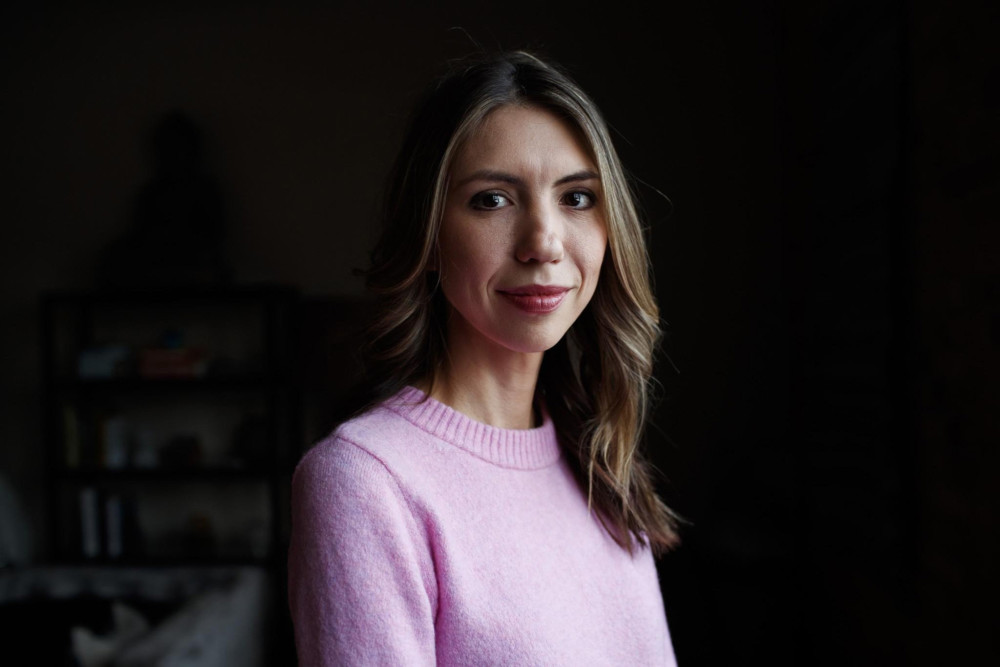By Kate Thayer
Chicago Tribune
WWR Article Summary (tl;dr) Treatment professional A’nna Jurich says women often avoid or delay treatment because they can’t be away from their children. In addition she says many women simply feel too ashamed to admit they have a problem.
Chicago
There was no stereotypical rock bottom for Jessica Foody, but the signs were there.
The now 33-year-old Chicago woman, then in her late 20s, held down a steady job as a nurse and appeared to be a typical, successful professional, except when she drank.
Foody said she couldn’t stop at just one glass of wine and used alcohol to quell the crippling anxiety she’d struggled with since childhood. One glass would turn into two, then three and more. Some mornings, she’d wake up not knowing what had happened the night before.
“It was like Russian roulette. I just didn’t know how it would end,” she said. “Nothing bad happened. … I was just getting further and further away from the woman I wanted to be.”
Foody eventually decided to quit drinking after reading an article that inspired her to quit for one year. She was successful in the challenge but returned to alcohol just after the year was up. Foody now says she didn’t have enough of the right kind of support.
Part of it, she said, was she didn’t know any other sober women her age. It wasn’t until she met other women in recovery that she was successful in her sobriety.
“The first time I shared openly about my struggles was with other women,” she said. “It’s just such an important thing for women to be open about their recovery.”
Foody’s preference isn’t unusual. Addiction experts say women in recovery often have different needs and obstacles than men, and accommodating them is important at a time when research shows women are drinking more, and in higher amounts.
The stakes are high: A report released recently by the National Institute on Alcohol Abuse and Alcoholism shows alcohol-related deaths in the U.S. overall are climbing, especially among women.
“For many, many years, up until the ’90s and 2000s, almost all the (research) in the drug and alcohol fields focused on men,” said Dr. Kathleen Brady, an addiction psychiatrist at the Medical University of South Carolina who studies gender differences in substance use treatment. “Gender is an important issue. We really have to be looking for gender-specific differences” within traditional treatment programs.
Those differences for women include difficulty sharing in coed groups, a greater risk of psychiatric issues like depression or anxiety with addiction, as well as more logistical challenges to treatment, such as child care.
Women are also more likely to have a partner who has a substance-use issue, Brady said, which is problematic to sobriety.
While everyone needs an evaluation from a trained, addiction professional, as well as in-patient treatment programs for those with severe addiction, Brady said it’s important for professionals to then create individualized treatment plans. What works for some might not work for others, she said.
For many women, that could mean looking for single-gender therapy groups where they are more comfortable sharing, especially when it comes to trauma, Brady said.
Women tend to understand one another better in a single-sex environment, and relate to feelings of shame or difficulties in getting sober, said A’nna Jurich, executive director at Gateway Foundation treatment center in Carbondale. Recognizing this, the nonprofit treatment center last fall opened Her Story, a woman-only, in-patient program that focuses on addressing substance abuse, coupled with treating trauma.
Women not only avoid or delay treatment because they can’t be away from their children, but they also feel too ashamed to admit they have a problem, she said. A comforting environment among other women who understand can help.
“Women take everything on their shoulders. Women get a lot of ‘how can you do this when you have kids.’ They hear those messages a lot,” Jurich said. Fathers, however, hear ” ‘you’re such a good dad for coming in.’ “
Having a place where women can share openly and be vulnerable is a key component to sobriety, she said.
The company of other women inspired Foody to quit drinking the second time around. She had signed up for a weeklong yoga retreat in Mexico for women in any type of recovery. Although Foody said she initially signed up for her anxiety, not her drinking, when she arrived, she was surprised to discover every other attendee was a sober woman.
She said it was eye-opening, and she hasn’t had a drink since, more than 2 1/2 years.
Being surrounded by other sober women “made me want what they had,” Foody said. So when she returned from the retreat, Foody decided to seek that out and formed her own local group of sober women to share their recovery journey.
That has led Foody to become a certified recovery coach, working one on one with women. She also leads a Sharing Circle in Ravenswood for She Recovers, the group that hosted the yoga retreat that supports women in recovery.
“The sharing circles mean so much to me,” Foody said. “Women might not feel comfortable going to a 12-step group. My goal is that every woman leaves the sharing circle feeling seen and heard, and … to feel empowered.”
“It’s hard for women to be honest in groups of men,” said Marissa Kirch, a social worker and manager of addiction treatment services at the Northwestern Medicine Ben Gordon Center in DeKalb. “Being able to open up is important in being able to get and stay sober.”
Kirch oversees several programs at the center that are specifically geared toward women, including a woman-only sober-living home. Other group programs deal with issues that are unique to women in addiction, like domestic violence, prostitution, exotic dancing and body image.
“The main thing is being able to provide them that space for them to open up,” she said. “In coed groups, we see women aren’t as forthcoming with trauma, intimacy and relationships.”
Norma, 59, whose last name is being withheld because she fears revealing it will affect her employment, went through several treatment programs but would always relapse with alcohol and drugs. Then, about eight years ago, she found a woman-only Gateway Foundation program in Chicago called Aspire. There, she discovered comfort in the camaraderie of women, as well as the tools to not only deal with her addiction, but also the abuse and trauma she’d experienced throughout her life.
“These are other, fellow women. … Even though we don’t have the same exact story, we have a lot in common,” she said. “We’ve been through a lot of pain.”
She said that growing up, she didn’t have people to talk to about her problems, and she was especially distrusting of women due to previous family relationships and abuse. But at the program, she learned to overcome that, she said, and found it was helpful to talk about her struggles.
Norma also said she felt comfortable around other women because they understood her. “For a woman … society expects a lot to be a mother. Men are looked at different, I believe, than women. (Addiction) is not supposed to happen to a woman, but we’re human beings, too.”
Holly Whitaker, 41, New York City-based author of “Quit Like a Woman,” writes that traditional treatment, including Alcoholics Anonymous, might not work or be enough for some groups, including women.
She said she discovered this several years ago, when she was drinking a few bottles of wine a night, using marijuana and struggling with bulimia. When she realized she wanted to address her addictions, Whitaker first turned to her doctor and the traditional health care setting.
But therapists alone didn’t work for her, she said, and treatment centers with their high price tags weren’t covered by her insurance. Whitaker said she attended AA meetings for a year but didn’t feel comfortable. “I tried it; it felt wrong. … I thought it was working against my recovery.”
Whitaker said she felt uneasy about the idea of “powerlessness”, part of the first step in AA, especially as a woman. “I don’t think I’m powerless to alcohol.” Instead, she said she knows she can’t have alcohol and chooses a life without it.
She said she understands the reasoning for the step and its meaning of surrendering to a higher power, and recognizes that AA works for many people. But the defining concepts of the group, which Whitaker writes in her book were developed decades ago by men, aren’t ideal for everyone.
An AA public information officer said many women find solace in AA meetings and pointed to the organization’s creation in 2018 of materials specifically aimed at women and some for the LGBTQ community, including stories of how others like them found help in AA.
But Whitaker said she found other ways to stay sober without giving up her power. That included meditation, using positive affirmations and enrolling in a course on joy. She then started teaching others what worked for her.
Nearly seven years since her last drink, Whitaker now heads up a company she founded. Tempest is a digital, female-centric “sobriety school.” She said it’s an alternate and more affordable resource that offers tools to help participants “reexamine their relationship with alcohol.”
Whitaker said her practices reinforce the idea that recovery is a journey.
“We all want to boil it down (to) ‘and then I went to rehab and then I got better,'” she said. But “it’s a long process.”
___
Distributed by Tribune Content Agency, LLC.















































































































































































































































































































































































